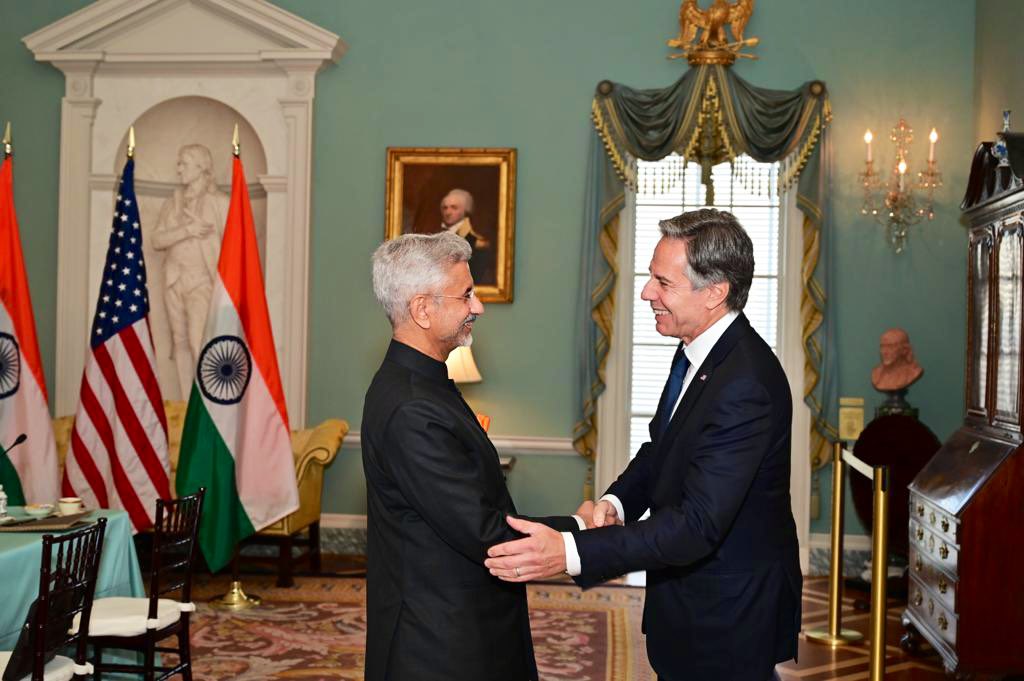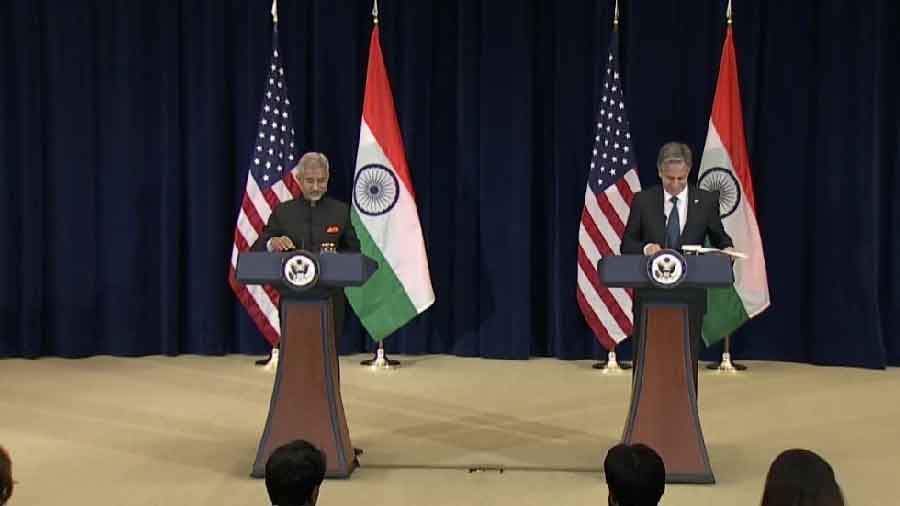India has said that it faced no difficulties in terms of servicing and spare parts supply of equipment that it received in the past from Russia in the aftermath of the war in Ukraine and asserted that it exercises a choice which it believes is in its national interest when it is offered weapons.
External Affairs Minister S Jaishankar made the remarks during a joint press conference with US Secretary of State Antony Blinken here on Tuesday after holding bilateral talks.
"I don't think in recent months we have faced any particular problems in terms of servicing and spare parts supply of (military) equipment that we have got in the past from Russia," Jaishankar told reporters while responding to a question.
He was asked about India's plans for military hardware and equipment given the sanctions that the US and others are putting on Russian industry and whether India will look at more purchases of American or Israeli military equipment.
"Where we get our military equipment and platforms from, that's not an issue, honestly, which is a new issue or an issue which has particularly changed because of geopolitical tensions," Jaishankar said.
India, he noted, looks at possibilities across the world. "We look at the quality of technology, the quality of capability, the terms on which that particular equipment is offered, and we exercise a choice which we believe is in our national interest," he said.
In the last 15 years, for example, India has actually procured a lot from the United States, he said. "If you maybe consider, for example, aircraft the C-17, the C-130, the P-8, or the Apache helicopter or the Chinooks or the Howitzers, the M777 Howitzers we have done so from France when we recently bought their Rafale aircraft. We have done so from Israel," the minister noted.
"So, we have a tradition of multi-sourcing and for us, how to get the optimal deal from a competitive situation is really what this is all about," Jaishankar said.
Russia has been a major supplier of military hardware to India. The two countries have been holding discussions on what kind of payment mechanisms can work between them in view of the Western sanctions on Moscow.
Earlier this month, Russian Ambassador to India Denis Alipov said that Russia has delivered its most advanced long-range surface-to-air missile defence system S-400 to India on time despite pressure from Washington and the US-led West's sanctions.
The S-400 is known as Russia's most advanced long-range surface-to-air missile defence system. The 'Triumf' interceptor-based missile system can destroy incoming hostile aircraft, missiles and even drones at ranges of up to 400 kms.
Russia had started delivery of the first regiment of the missile in December last year.
The missile system has already been deployed in such a way that it can cover parts of the border with China in the northern sector as well as the frontier with Pakistan.
In October 2018, India had signed a USD 5 billion deal with Russia to buy five units of the S-400 air defence missile systems, notwithstanding warning from the then Trump administration that going ahead with the contract may trigger US sanctions under CAATSA.
Countering America's Adversaries Through Sanctions Act or CAATSA is a tough US law which authorizes the administration to impose sanctions on countries that purchase major defence hardware from Russia in response to Russia's annexation of Crimea in 2014 and its alleged meddling in the 2016 US presidential elections.












